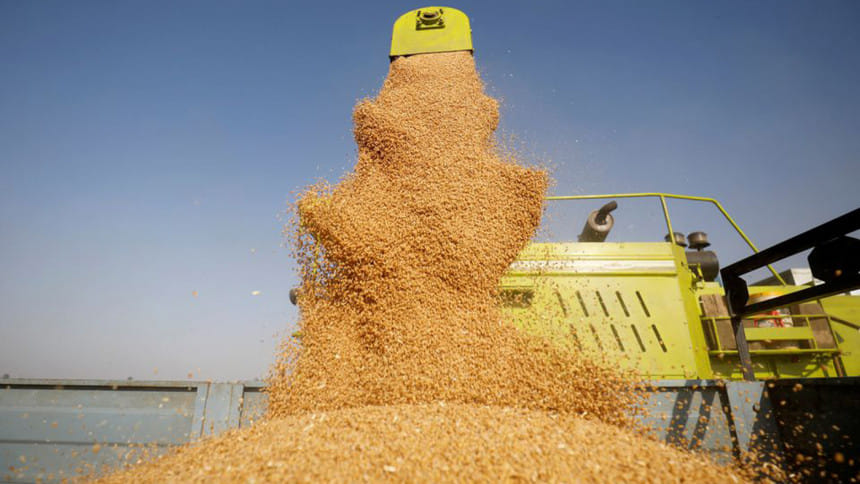India may guarantee supply of 7 essentials

Bangladesh is hopeful of an Indian guarantee of a quota ensuring the year-round import of seven essential commodities as the neighbouring country has shown interest and bilateral negotiations are progressing for signing an associated agreement.
A commerce secretary-level meeting between the two countries is scheduled to be held virtually this month to assess Bangladesh's demand and India readiness to give the guarantee.
"We have fixed two dates (either August 17 or August 20) for holding the meeting," said Senior Commerce Secretary Tapan Kanti Ghosh over the phone.
Moreover, Prime Minister Sheikh Hasina is also scheduled to visit India to attend the 18th G20 Summit in New Delhi on September 9 and 10.
During that time, issues including the guarantee and progress over signing a comprehensive economic partnership agreement (Cepa) between the two countries are scheduled to be discussed with Indian Prime Minister Narendra Modi.
However, since the prime minister will attend the G20 Summit, the possibility of holding a full-fledged bilateral meeting is thin, said Ghosh. Still, there is a possibility of discussions on the food grain import and Cepa, he said.
Bangladesh had sought a secured supply of 45 lakh tonnes of wheat, 7 lakh tonnes of onion, 30,000 tonnes of lentil, 20 lakh tonnes of rice, 15 lakh tonnes of sugar, 10,000 tonnes of garlic and 1.25 lakh tonnes of ginger each year.
Preliminary discussions on the issue were held during Prime Minister Sheikh Hasina's visit to India in September last year.
In a joint statement after the visit, the two leaders appreciated the growth in bilateral trade, with India emerging as the largest export destination for Bangladesh in Asia.
The Bangladesh side requested the Indian side for predictable supply of the essential food commodities.
The Indian side conveyed that Bangladesh's requests will be favourably considered based on prevalent supply conditions in India, and all efforts will be made in this regard, according to the joint statement in September last year.
Afterwards, Commerce Minister Tipu Munshi also visited India in December last year and formally placed the import demand with the Indian government.
Later, India suggested that Bangladesh review several of the figures, saying those were too high.
One was the 45 lakh tonnes of wheat.
In this regard, India pointed out that currently it was annually providing about 7 lakh tonnes on an average.
Bangladesh annually imports nearly 65 lakh tonnes of wheat from different sources, particularly Russia and Ukraine, to meet local demand.
But following Russia's invasion of Ukraine early on last year, the price of wheat increased worldwide as its availability became uncertain for the ensuing volatility in the global supply chain.
This prompted the government to look for a guaranteed supply of seven food items to avert any potential food crisis amidst ongoing economic uncertainties.
Later, the commerce ministry formed a five-member committee to assess the actual demand for wheat, rice and sugar, local production and import figures over the last decade, particularly that from India, to send revised figures to India.
The committee was headed by Noor Md Mahbubul Haque, additional secretary to the ministry. Later the commerce ministry sent the revised figures.
The upcoming meeting will be mainly on the import quantities as India recently has shown interest to go into an agreement over the seven essential commodities, Ghosh also said.
However, since the deal has not yet been finalised, it has also not been determined how much the government will import and how much the private importers will import, he said.
Once the deal is finalised, the price and the quantities of both the government and private sector will be determined, he added.

 For all latest news, follow The Daily Star's Google News channel.
For all latest news, follow The Daily Star's Google News channel. 








Comments